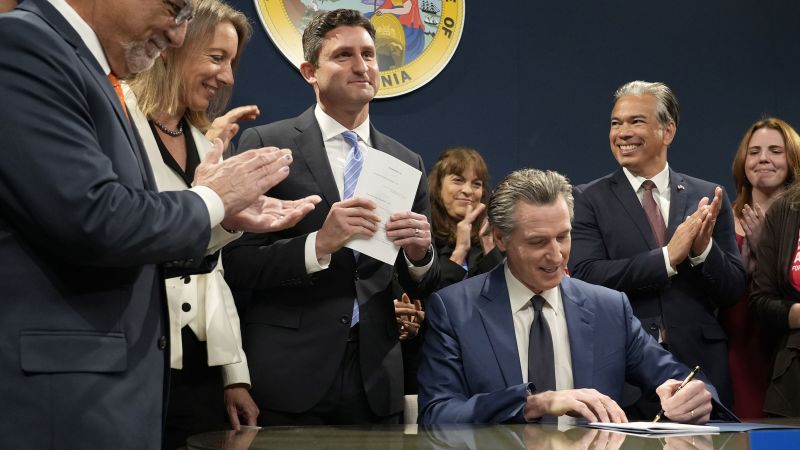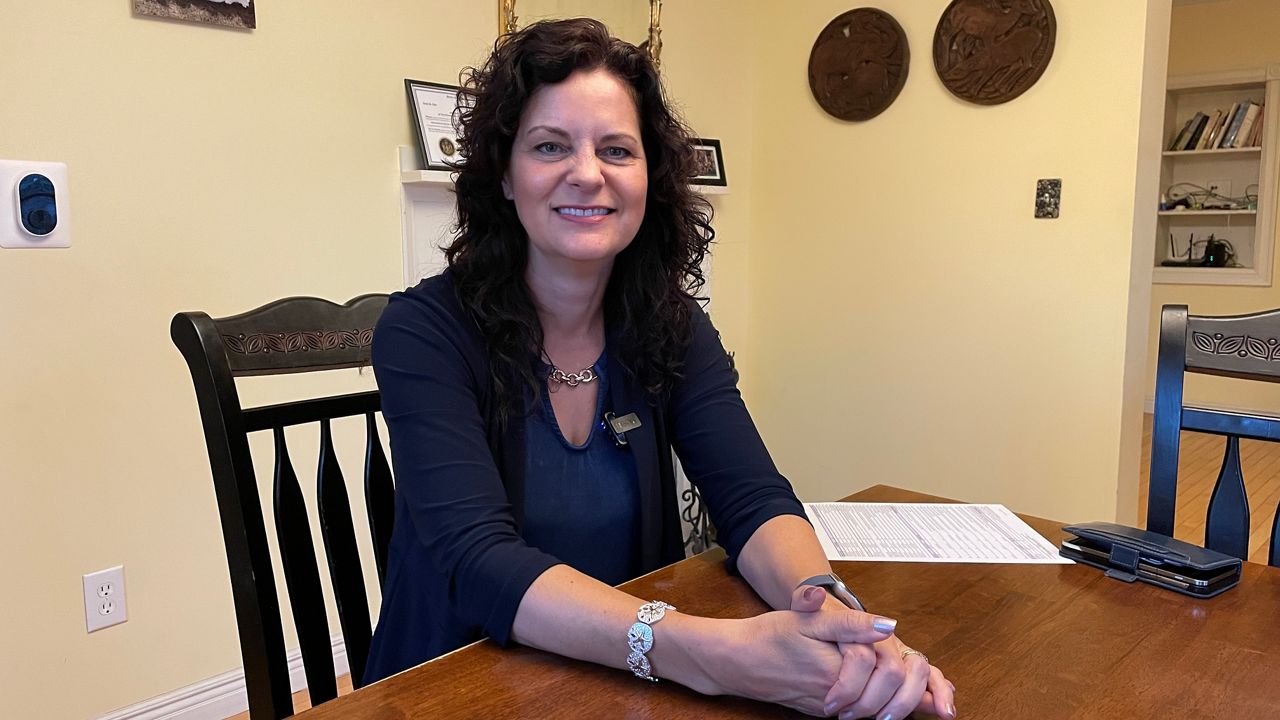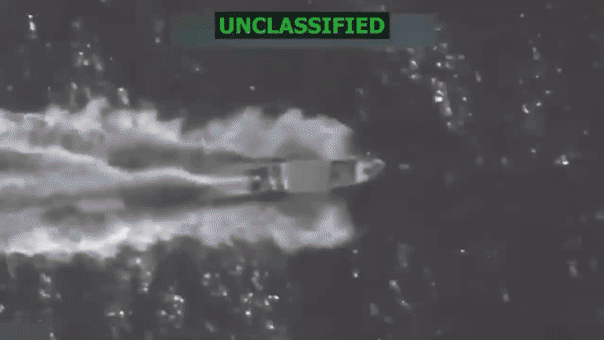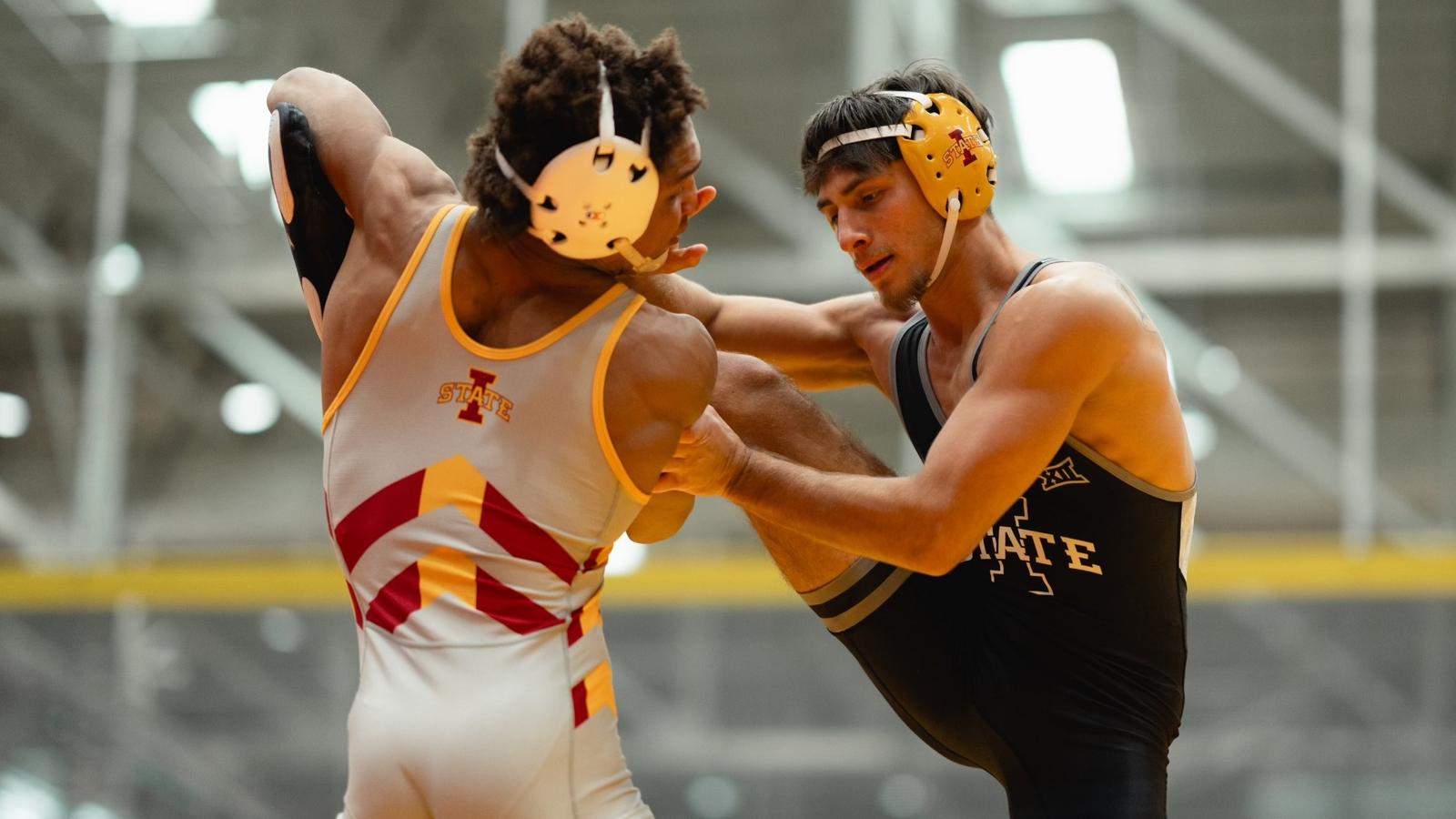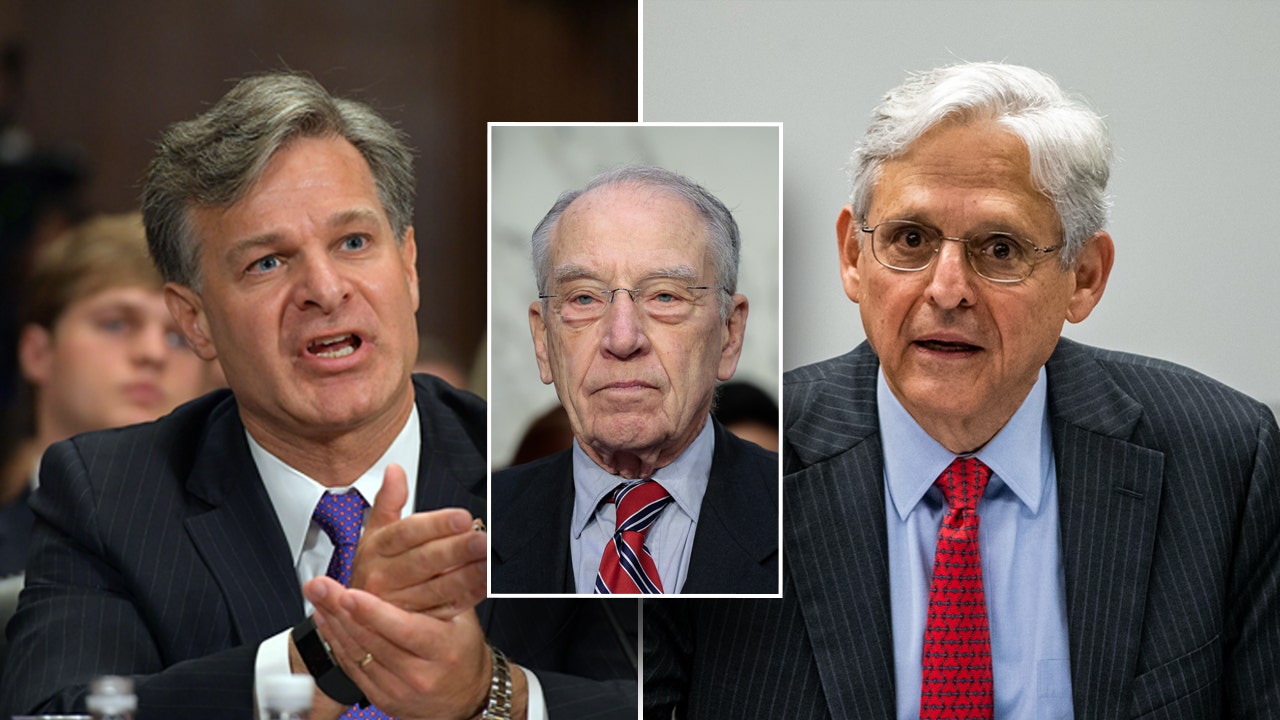CNN
—
California Gov. Gavin Newsom signed a series of gun control measures into law Tuesday, impacting where Californians can legally carry weapons and levying the nation’s first state tax on firearms and ammunition, prompting at least one lawsuit and likely future legal challenges from gun rights advocates.
The legislation places an 11% excise tax on firearms and ammunition sold by gun manufacturers and dealers in the state, which officials say will fund school safety and violence reduction measures. That’s on top of the nation’s existing 10% to 11% federal tax on guns and ammunition, effectively doubling the firearm tax in California.
The legislation also bans the concealed carrying of a gun in certain “sensitive places,” including educational institutions, parks and sporting events, and sets the minimum age to obtain a concealed carry permit at 21. It also strengthens background checks for people seeking firearm permits.
Another new measure will require the “microstamping” of all semi-automatic firearms sold in or transferred to California by 2028. Microstamping involves engraving a unique identifier onto the firing pin of a weapon, which is stamped onto bullet shell casings when the gun is fired, making it easier for investigators to tie shell casings recovered at crime scenes to the specific gun involved.
In a news release about the new legislation, Newsom cited shootings across the country that left at least 104 people dead over the 72 hours prior to the signing. Nationwide there have been 519 mass shootings so far this year, according to the Gun Violence Archive, at least 36 of which were in California, including those in Monterey Park and Half Moon Bay, which left a total of 18 people dead.
Newsom isn’t the only Democratic governor taking action to restrict the carrying of weapons in public spaces.
Earlier this month, New Mexico Gov. Michelle Lujan Grisham announced an emergency order suspending the right to carry firearms in most public places around Albuquerque following a spate of gun violence. The ban, which was implemented through a public health order rather than legislation, faced immediate backlash from both gun rights and gun control supporters.
Lujan Grisham narrowed the scope of the order after it faced several legal challenges.
During the signing ceremony, Newsom slammed last year’s landmark US Supreme Court decision expanding gun rights and criticized lower circuit courts that have since overturned gun control measures.
That ruling, New York State Rifle & Pistol Association v. Bruen, changed the framework judges must use to review gun regulations and determined that modern-day laws restricting gun ownership are only constitutional if similar regulations were in place when the Constitution was drafted.
“This bill follows the blueprint of the Bruen decision,” California Attorney General Rob Bonta insisted Tuesday. “It is designed to comply with the dictates of Bruen and keep us safe here in California.”
But gun rights groups have criticized the designation of areas prohibiting the concealed carry of firearms, claiming such restrictive measures run counter to the Supreme Court’s decision.
The Firearms Policy Coalition, a group in support of gun rights, announced it filed a lawsuit Tuesday challenging that portion of the legislation.
“SB2 restricts where persons with licenses to carry a concealed weapon may legally exercise their constitutional right to wear, carry, or transport firearms. And it does so in ways that are fundamentally inconsistent with the Second Amendment and the Supreme Court’s decision in Bruen,” the complaint states. “The Second Amendment does not tolerate these restrictions. This Court should enter judgment enjoining their enforcement and declaring them unconstitutional.”
Newsom acknowledged the uphill battle gun safety advocates are facing with the majority conservative high court.
“The point is pretty damn obvious to anyone paying attention: it’s great what we’re doing, but it may not be enough,” said Newsom. “We know what we’re up against. We just need to be more clear (about) what we’re up against.”

